Hospital waits: Patient faces 44-hour wait at Ulster Hospital ED
- Published
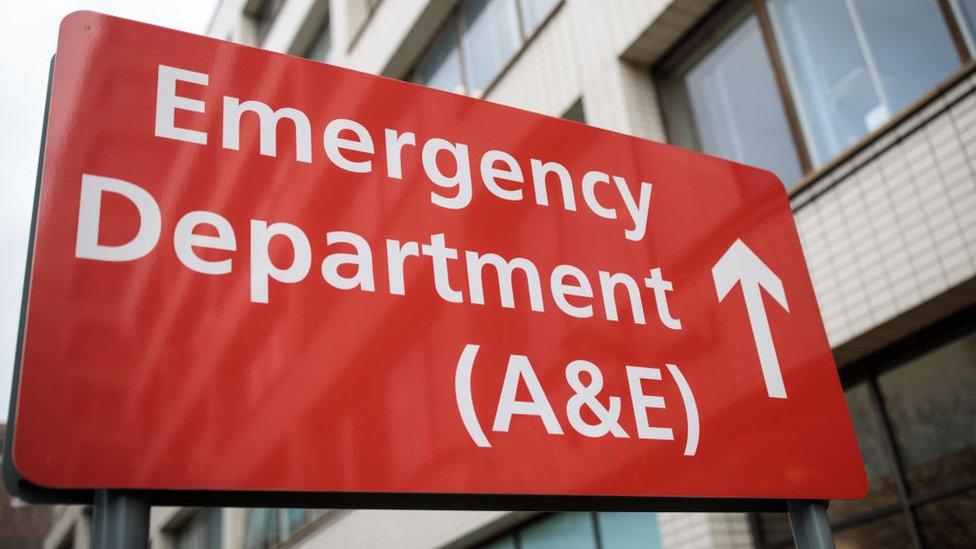
"We are on the cusp of an emergency department in Northern Ireland having to close its doors"
One person had to wait 44 hours in an emergency department to be admitted to the Ulster Hospital at the weekend.
The South Eastern Health Trust confirmed that another patient spent 12 hours in an ambulance before admission.
Emergency departments across Northern Ireland have reported extremely high numbers of patients over the weekend.
One senior doctor warned there was a serious possibility an emergency department (ED) would have to close its doors to new admissions.
BBC News NI understands that all the trusts have breached targets for waiting times, but figures for other trusts have not yet been made available.
'Extreme pressure'
The Northern Ireland Ambulance Service (NIAS) confirmed that on Saturday 45 crews were delayed at hospital for more than two hours, with the longest wait being six hours and 19 minutes.
A total of 58 patients were waiting on trolleys in the Ulster Hospital as of Monday morning.
Dr Seamus O'Reilly, medical director at the Northern Health and Social Care Trust, said EDs across Northern Ireland were struggling.
"We are on the cusp of an emergency department in Northern Ireland having to close its doors," he told the BBC's Evening Extra programme.
"What that means is those doors will be closed to any admissions and patients will have to be redirected elsewhere into a system that is already under extreme pressure."
Dr O'Reilly said this could happen to any hospital in Northern Ireland, given the pressure they were under.
"If we continue with this pressure and if we move into the winter months and the pressure gets worse, that is a real possibility," he said.
At Altnagelvin Hospital in Londonderry, there were 88 people waiting in the ED and 40 waiting to be admitted to the hospital shortly before 13:30 GMT on Monday.
A senior doctor working in the ED said staff in the department were "under extreme pressure" in a video tweeted by the Western Health Trust.
Allow X content?
This article contains content provided by X. We ask for your permission before anything is loaded, as they may be using cookies and other technologies. You may want to read X’s cookie policy, external and privacy policy, external before accepting. To view this content choose ‘accept and continue’.

Speaking to BBC Radio Foyle, Dr Paul Baylis, an ED consultant at Altnagelvin, said the situation at the emergency department was the worst he had known in his 21 years working at the hospital.
"I first walked into this emergency department in 2000 and coming on this morning was the worst morning I have seen.
"We had 40 patients waiting for beds and only have 30 cubicles.
"Clearly that's 10 patients sitting on chairs, 10 people who have been told they are too sick to go home, who have been told they need to stay in hospital and who are then presented with a chair to sit on".
Moving patients, he said, from A&E to a hospital bed is almost impossible currently.
"The issue is the hospital is rammed. In the context of Covid it is hard to get people out of hospital." he said.
A week ago, Dr Sean McGovern, a consultant in emergency medicine at the Ulster warned that patients would have to wait longer because of Covid.
About 200 patients were waiting for a bed last Monday.
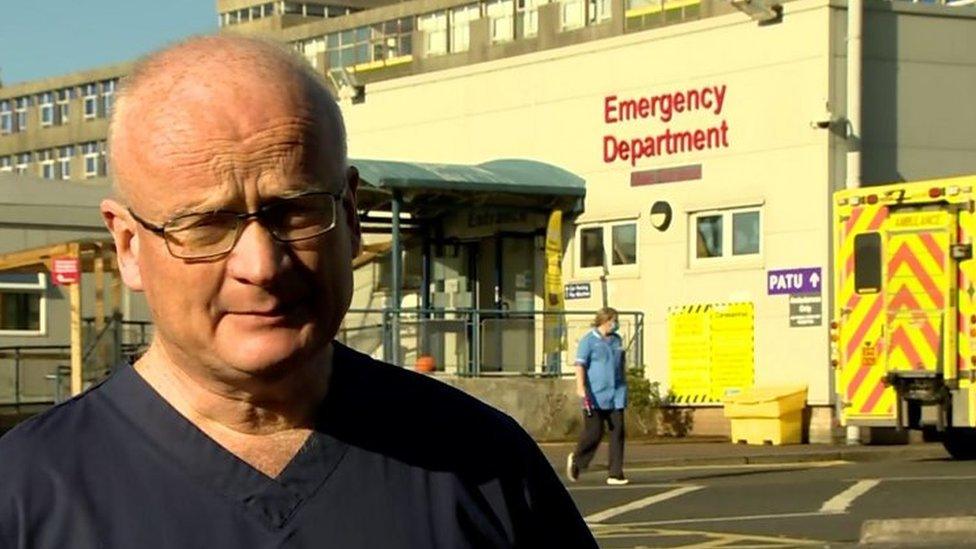
Last week, Dr Sean McGovern warned all patients faced longer waits due to high numbers of Covid patients
He said staff were under "enormous pressure" and medical staff were hoping those were the worst figures they would see in what has become a "normalised winter crisis".
He said fewer Covid-19 patients would mean fewer people waiting for a bed.
He said there had been a shortage of beds before the pandemic but the number of Covid cases was adding to existing problems, meaning patients face longer waits at emergency departments, for ambulances and for surgery.
More than 80 Army medics and 30 support staff were deployed to work in Northern Ireland hospitals in September. They have now returned to Great Britain.
Dr Frances O'Hagan, of the British Medical Association (BMA), said last week that hospitals had overwhelmed by coronavirus and other illnesses.
She said one problem was that too few people had been vaccinated for Covid-19.
Related topics
- Published25 October 2021
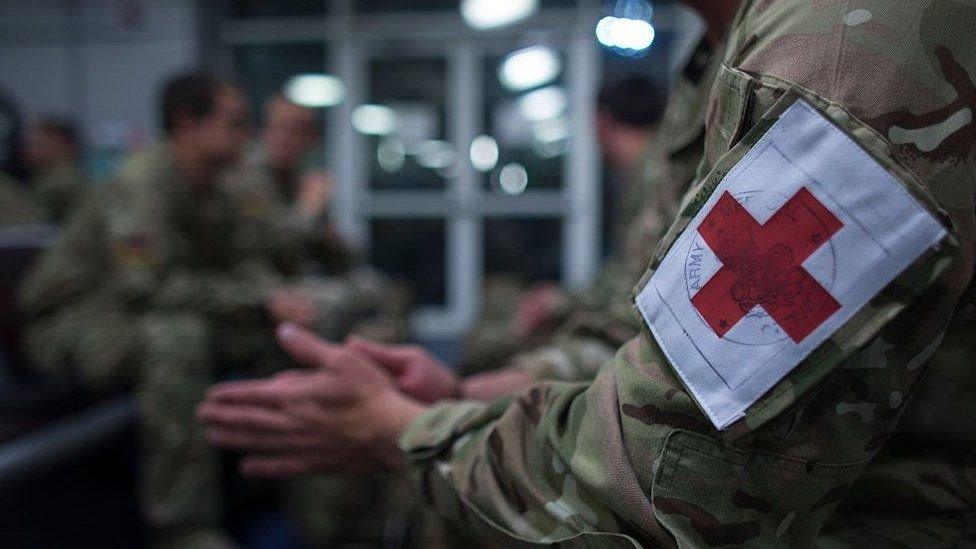
- Published29 October 2021
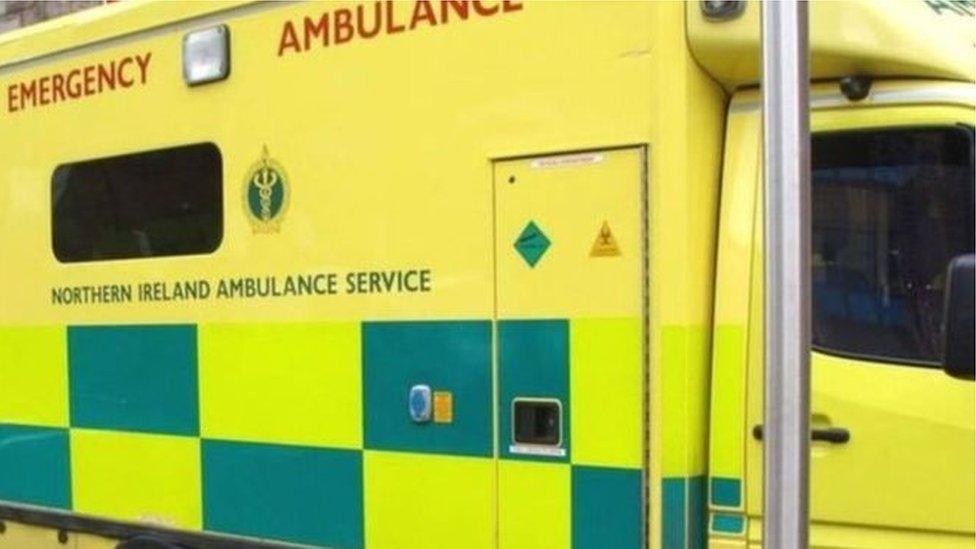
- Published6 July 2021

- Published14 October 2021
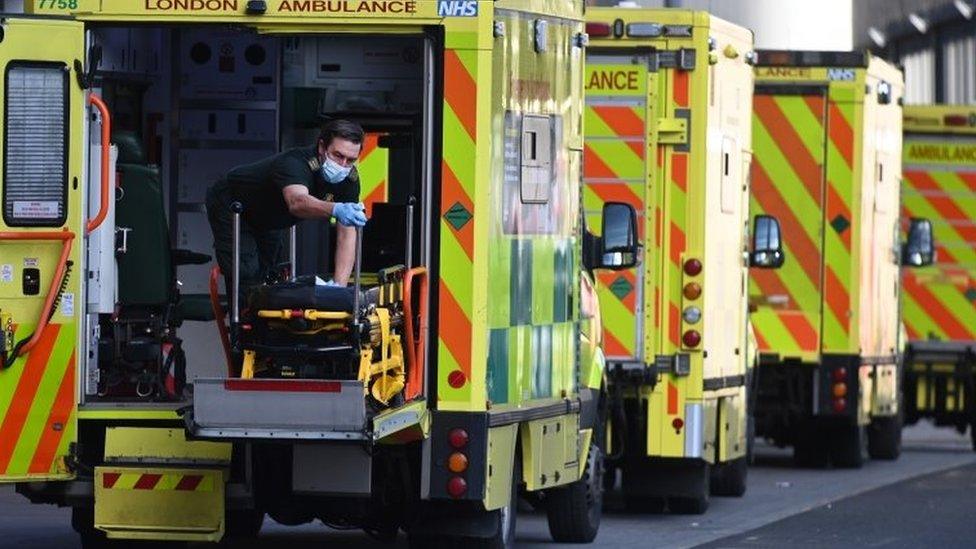
- Published17 December 2020
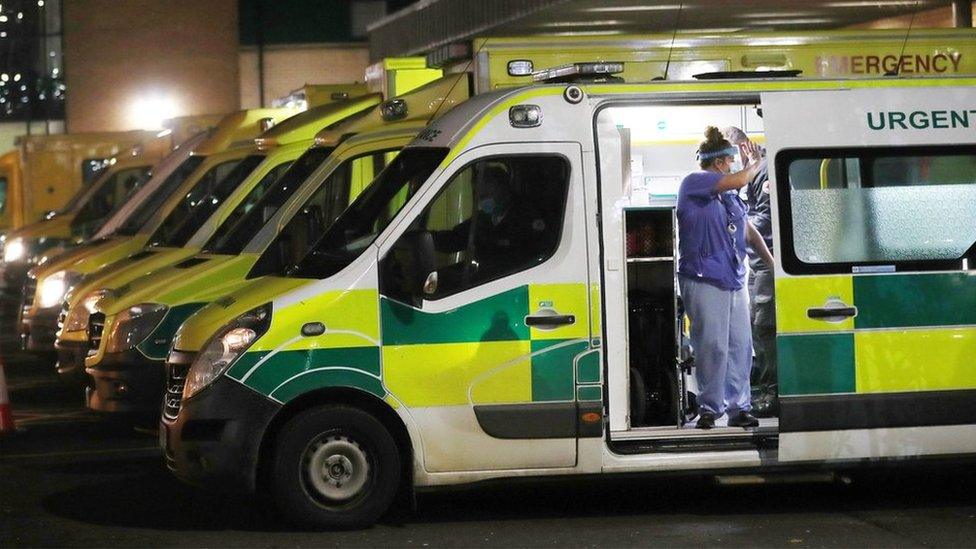
- Published30 August 2021
